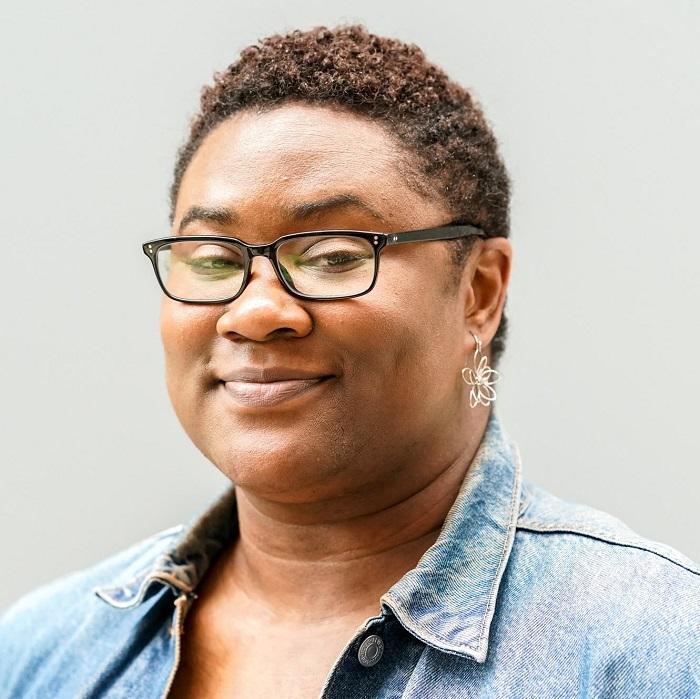
Looking for what they call a “holistic approach” to helping children who are criminally charged, state lawmakers and community advocates introduced legislation that would raise the legal age limit kids can be prosecuted under in juvenile court in Colorado.
The legal age limit for prosecutions is currently 10 years old, based on state law. But HB 23-1249 excludes children younger than 13 from being prosecuted in juvenile court — except in cases of suspected homicide. It was introduced March 20 and is currently making its way through the statehouse.
Its first committee hearing is scheduled in the house judiciary for April 5.
State Rep. Serena Gonzales-Gutierrez said she’s seen kids between 9 and 11 years old with behavior problems that possibly could have been treated if effective intervention took place.
“Almost every single family I've interfaced with, with a young person who has racked up a bunch of charges says to me, I asked for help, whether it was the school and maybe the school didn't have the resources or I called human services and they told me, your kid is gonna have to get in trouble in order to get the help that they need,” she said.
Gonzales-Gutierrez, along with other lawmakers and Healthier Colorado in Denver, are pushing the new bill. Republican state Rep. Ryan Armagost said they are seeking a more holistic approach to juvenile justice through the bill by requiring the use of Collaborative Management Programs — a conglomerate of agencies and services for at-risk children, youth and families. The state legislature passed a previous bill in 2004 that permitted counties to implement the programs.
They currently exist in most counties in the state, according to Kyle Piccola, vice president of communications and advocacy at Healthier Colorado. Instead of prosecution, the new bill would require law enforcement to refer kids younger than 13 years old who are accused of a crime to the programs for assistance.
“It’s like getting everyone at the table at the same time to ensure the best resources are provided,” Piccola said.
Bill lacks clarity and effectiveness, opposers say
The Colorado District Attorneys’ Council confirmed Thursday they are opposed to the proposal. The council’s Sex Assault Resource Prosecutor Jessica Dotter said they are concerned about recourse for victims.
“There's no enforcement authority or process to ensure that these kids who would have been engaging with the juvenile justice system, are actually engaging in these recommended services,” Dotter said. “I think they put a good faith effort into coming up with a plan … but it’s just not a good plan.
“As unfortunate as it is, and we don’t like to think about this, but 10 to 12-year-olds do commit a significant number of sexual and violent crimes,” Dotter added.
While the DA council acknowledges its information is limited, data shows that between 2011 and 2021, roughly 1,500 cases were filed involving sexual assault on a child by other kids. Dotter noted that in the grand scheme of things, these numbers aren’t much, but said the bill doesn’t entail how accountability will be enforced.
“There is a lack of due process for kids who are accused of committing a crime when a kid denies the crime,” Dotter said.
She said they’re concerned there's no incentive for police to continue investigating when they would refer suspects to the management programs. There would be no recourse for victims if the accused say they didn't do it, Dotter said.
“The threat that the bill sets up is that DHS will come after the parents,” she said. “But DHS is set up for abuse and familial cases, not, did you take your kid accused of this to ‘services.’”
A similar piece of legislation was introduced last year and made it through committee but ended up becoming the Pre-Adolescent Services Task Force. It required the state Department of Human Services to create a 32-member task force to examine potential gaps in services for juveniles who are 10-12 years of age if the minimum age of prosecution of juveniles ever increases from 10 to 13.
The task force is expected to help figure out how services can be delivered outside the juvenile justice system and make recommendations for funding those services.
More from legislators, advocates
The legislation removes the justice system as the go-between for kids who need intervention and services. The resource programs are designed and have been proven to keep kids out of trouble, according to Piccola.
“It's important to note that the justice system is not a service delivery system,” Piccola said. “We are trying to make that point of entry, not the justice system, and make it more of a holistic system.”
Under the new bill, law enforcement will be allowed to take kids aged 10 to 12 into temporary custody for safety reasons, the bill states. Police will also need to complete a form to refer the child to the local collaborative management program.
According to Republican State Rep. Ryan Armagost, who also backs the bill, children are often arrested for minor infractions.
“So just to get away from criminalizing the kid for as something as simple as a schoolyard prank to something as serious as potentially acting out sexually … and redirecting them to getting them the right plan and or treatment that they need, [instead of] just dragging 'em into the criminal justice system.”
Gonzales-Gutierrez said science backs up the fact that youth’s brains are still developing and they shouldn’t be treated as adults.
“It may be a housing issue, it may be they can't get food on the table,” she said. “There may be a variety of reasons why a young person is acting out in the way that they may be.”
She says trapping kids in the juvenile system increases the chances of recidivism.
“We are continuing a cycle of trauma for our young people by putting them into a carceral system as opposed to getting them the help that they need and getting any other folks that have been impacted by the behaviors, any victims as well, getting them the help they need.
Under the proposed bill, victims of crimes committed by children who are 10 to 12 years old can still access existing victim services and compensation.
Key takeaways from House Bill 23-1249
- The bill changes the minimum age of a child who is subject to the juvenile court's jurisdiction from age 10 to 13, unless the child is suspected of committing homicide.
- The bill also changes the minimum age to be charged by a municipal court for a municipal offense to 13 years of age. Under current law, a juvenile court may transfer a child to district court for adult criminal proceedings under certain conditions.
- Juvenile courts would not be allowed to transfer children who are 12 or 13 years of age to the district court. For a child who is 14 years of age or older, the bill changes the current authority of the juvenile court to transfer the child's case for any delinquent act that constitutes any felony to only any delinquent act that constitutes a class 1 or class 2 felony or a crime of violence.
- Counties in the state are currently permitted to form a local collaborative management program to provide services to youth. The bill requires every county to actually participate in the local program and requires the program to serve children 10 to 12 years of age by forming a service and support team to create support plans for children 10 to 12 years of age.
- The bill provides an appropriation for local collaborative management programs and requires the Department of Human Services to provide technical assistance.
- The local collaborative management program's individualized service and support team is required to complete an initial plan for every child who is referred.
- Victims have the right to be informed and provide input for treatment plans.
- Victims of actions by children who are 10 to 12 years of age are still able to access existing victim services and compensation. The bill provides that victims shall receive a free copy of the form completed by law enforcement, which can be used to request victims' compensation.
- A child who is 10 to 12 years of age who fails to comply with a protection order may be court-ordered to participate in a collaborative management program. The bill changes the minimum age of a county court's jurisdiction with the district court in criminal actions that constitute misdemeanors or petty offenses to 13 years of age.








